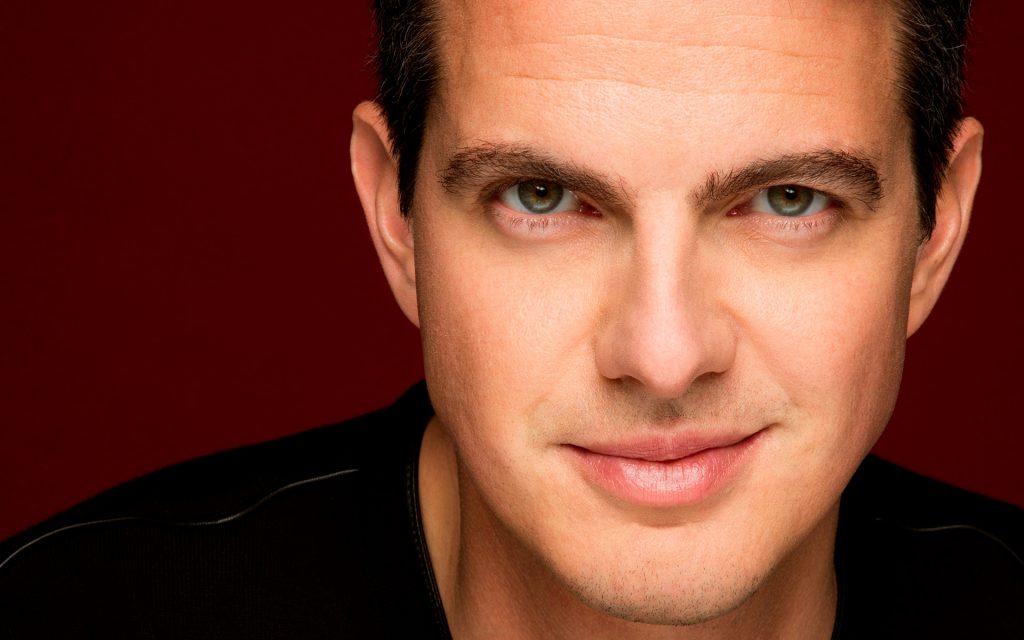PHILIPPE JAROUSSKY
The impossible voice
January 2021

Born in 1978, Philippe Jaroussky has established himself as the most admired countertenor of his generation, as confirmed by the French ‘Victoires de la Musique’ awards and multiple Echo Klassik Awards in Germany.
Jaroussky was born in Maisons Lafitte (northwest of Paris), in January 1978. He first studied violin and piano at the conservatory in Versailles. In 1996 he began vocal studies with soprano Nicole Fallien and three years later debuted at the music festivals in Royaumont and Ambronay, where he sang in the Alessandro Scarlatti oratorio Sedecia, rè di Gerusalemme.
The following year, Jaroussky appeared in the Monteverdi operatic trilogy Orfeo, Il Ritorno d’Ulisse, and Incoronazione di Poppea under conductor Jean-Claude Malgoire. Jaroussky’s meteoric rise continued with his critically praised portrayal of Nero in Handel’s Agrippina at the Théâtre des Champs Elysées in Paris in 2003. This production was also captured on record by Dynamic Italy, the release coming the following year, and again drawing generally positive notices.
Jaroussky has explored a vast Baroque repertoire. He has worked with renowned period-instrument orchestras such as L’Arpeggiata, Les Arts florissants, Ensemble Matheus, Les Musiciens du Louvre, with the leading conductors including Jean-Claude Malgoire, Rene Jacobs, and Jean Tubéry. He has appeared and recorded extensively with his own instrumental ensemble, Artaserse.
He has been praised for performances in all the most prestigious concert halls in France (Théâtre des Champs-Elysées, Salle Pleyel, Salle Gaveau, Opéra de Montpellier) and abroad (The Barbican Centre in London, the Palais des Beaux Arts in Brussels, Grand Théâtre du Luxembourg, the Konzerthaus in Vienna, the Staatsoper and Philharmonie in Berlin, Teatro Real in Madrid, Carnegie Hall and the Lincoln Center in New York).
In 2013 Jaroussky released his album Farinelli: Porpora Arias. The arias the French opera singer performs on this release were written in the 18th century for a castrato — a boy singer castrated to retain his high singing voice through adulthood. Jaroussky is still intact, as they say. He’s a countertenor who achieves that high pitch through vocal technique — singing in a ‘head voice,’ the way the way a female soprano would, rather than in his speaking register. It’s the reason, he says, that he’ll never sound exactly like a real castrato. “They were sounding more brilliant than us because they are bigger. They have enormous chests, with very small vocal cords,” Jaroussky explains in an interview with NPR’s Arun Rath. “What I liked with this Porpora music, particularly, is it wasn’t based about virtuosity. I think he’s respecting Farinelli more like a musician, and not only a vocal monster.”
Currently presenting a series of recitals with his own ensemble Artaserse, Philippe Jaroussky is currently touring across 6 countries and has 34 upcoming concerts. Their next tour date is at Palais des Beaux-Arts (Bozar) in Brussels, after that they’ll be at Tonhalle Düsseldorf in Düsseldorf.
